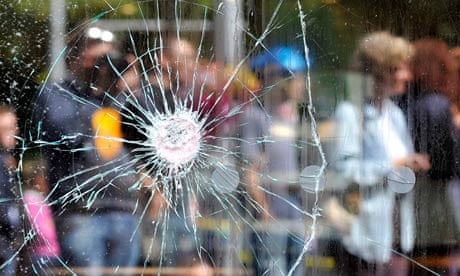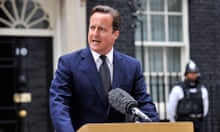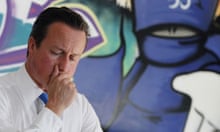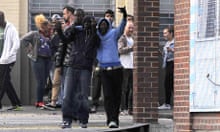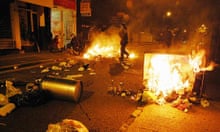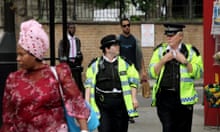Sixty-seven years ago the Italian journalist Curzio Malaparte wrote a despairing fictionalised memoir of Europe at war called Kaputt. This morbid, mocking book's last line – "the flies have won" – was as bleak as its title, at a time when the judgment was right.
Europe was kaput then. It isn't now. Sometimes we should remember this. A reality check is needed when there is so much to be anxious about: when the economy is sick; the riots frightening; the police frequently rotten; politicians lost – and all of this is reported, repeated and read.
That is as it should be. Concern for the suffering of others is a good response. Fear for ourselves is natural. But when these emotions sink towards self-perpetuating misery, proportion is lost. We are coming close to that now, with these recent explosions of news that swamp our ability to see the broader sweep. It is as silly to fall into all-consuming negativity as it is to deny anything is wrong.
Yet the mood is against a latter-day Dr Pangloss. To shout "cheer up" sounds trite; to offer context comes across as evasion; to suggest that for most people in this country life is prosperous, healthy and secure looks unkind to those for whom that is not so. This has been a particularly horrible month in an unsettling year. So we plunge into gloom and obsess about failings as if it would be almost indecent to do otherwise – while quietly living lives of cultural and intellectual possibility and material wealth that are, by historical standards, exceptional.
The contradiction is that this success is in among the causes of the anxiety. A limitless supply of news is today available, if we choose to follow it. The rise of digital media means that for the first time in any nation's history it is possible to be aware of catastrophe all over the planet, as it happens.
Lots about this is liberating, and I'm not arguing we should bury our heads in the sand: oppression can be resisted and overcome by reporting. People respond to climate change, or donate to famine relief because of what they learn. It was good to hear David Cameron and Ed Miliband not just condemn the looters but ask why they looted, and how society might change to stop them doing it again.
Yet there must be a limit to the capacity of humans to absorb bad news. It's likely that natural selection has not equipped the human animal to carry easily in the head and the heart the pain and difficulty of millions. Log on to Twitter late at night and you may go to sleep less optimistic about the possibility of progress than before – or than is realistic. Something disheartening, somewhere, will be happening about which you can do little: the stock market falling, or bankers getting rich; or climate change being ignored (for behind the hysteria of every current outrage lie others, possibly more significant, but hidden).
This is not just self-perpetuating – fear of economic recession is also a cause of recession – but distorting. See only the downside and you can end up regarding everything as lost. The Times led recently on the news that more people will live to 100, and so cause a welfare crisis. That is a thing to be afraid of, except that put differently (to medieval Britons, for instance, who were lucky to live to 40 and died in untreatable pain) living longer and having any sort of welfare at all would seem an unquestionable benefit. Since 2003, average male life expectancy in Britain has increased by 1.4 years. So, are things getting worse, or better? A surfeit of disaster may not lead to a redoubling of effort, but a collapse in hope.
From time to time someone insists there is too much bad news, and tries to report only the good. The attempt never works. You can't make a convincing story out of H5N1 flu being restricted, or the unemployment rate being less high (so far) than many predicted, or British rock music exports rising, or cod stocks off Canada recovering, or membership of the RSPB being at a record high, or the BNP being routed by voters at the election, or with the IRA in collapse, Eta dying and al-Qaida apparently contained, world terrorism having for the moment peaked. "Yes, yes," we say: "quite possibly". Then we revert to an agitated delight in calamity.
Monty Python – troubadour of British despondency – once mocked such miserabilism in song. "I'm so worried about what's happenin' today, in the Middle East, you know. And I'm worried about the baggage retrieval system they've got at Heathrow." Well, we're still worried about those things; decades on and they are still broken, and the world is still turning on its axis. So what did the worrying achieve?
Well, a collective recognition of failure and a desire to do better is evidence that society is healthy. It is right to search for the causes of riots. But a surfeit of disaster, perception of disaster and intimations of future disaster, may not lead to a redoubling of effort, but a collapse in hope. This enfeebles, paralyses. In Britain in the summer of 2011, we are uncomfortably close to that point.
It's time to recognise the folly, not just of false hope, but of false despair.
